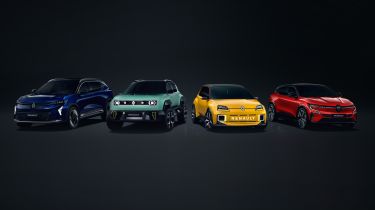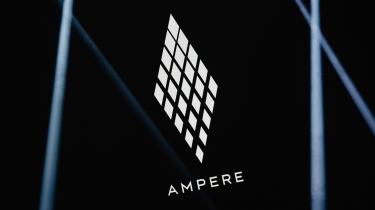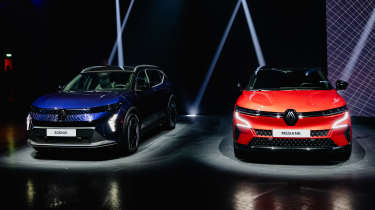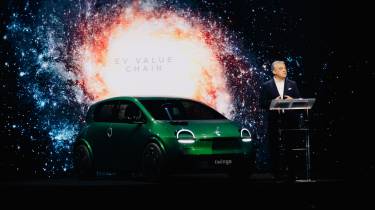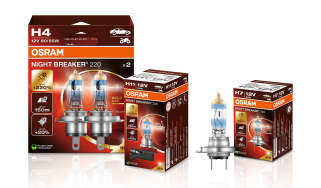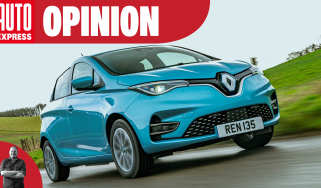What is Ampere? Exploring Renault's intelligent electric car brand
Traditional car manufacturers are being pushed harder than ever by an array of new, rapidly developing rivals. Renault’s answer is a whole new brand
As little as a decade ago, it would have seemed extravagant and unnecessary to set up a whole new car company within a manufacturer as well established as Renault.
But the nimble, cost-efficient and wide-reaching threat of new brands, primarily from China, has torn up the rule book – and Renault’s answer is Ampere.
Bold statements from the company claim that Ampere is “focused on leading” the growing electric vehicle market, wants “to take the lead in Europe in EVs and software”, and that it is the “first European intelligent EV pure player”.
Effectively, it’s a mini car company within the Renault Group, specialising in and producing B- and C-segment electric vehicles for the brand – segments that it expects will account for around 75 per cent of European sales by 2030. There are seven Renault models confirmed to be led by Ampere, with the recently updated Megane and new Scenic already on sale, as well as the forthcoming 5, 4 and Twingo, and a couple more still to be revealed. Ampere will also develop and build a pair of Alpine models, Nissan’s new Micra and an EV for Mitsubishi, which will be sold in mainland Europe, but not the UK.
The target is to reduce the cost of electric models by 40 per cent through a combination of improving the EV platform, optimising battery and e-powertrain performance, reducing the number of parts and cutting manufacturing time, to make EVs more affordable for more buyers. The division is named after André-Marie Ampère, the inventor of electrical intensity measurement, and its role at Renault is explained by Ampere’s vice-president of revenue management and customer experience, Christian Stein, who claimed it is the only way to deal with new competitors in the car market.
Pure and simple
“The competition we’re facing is essentially made of pure players. Tesla is a pure player and the Chinese are pure players,” he tells Auto Express, defining pure players as those who are entirely focused on EVs, and pinpointing their speed and nimbleness in developing batteries and connected services as strengths. “The cards have been redistributed.”
Stein continues: “We came to the conclusion that if we want to face this competition, we also need to be organised as a pure player, concentrating into a smaller company all the expertise we have and the expertise we might bring in, in terms of electric mobility, battery management systems and development of software and connected services. Ampere is first of all a tech company focused on what matters in terms of electric mobility.”
But the EV revolution has also coincided with a rise in expectation of connectivity from drivers.
“The reality is that being electric and being connected require an understanding of the full ecosystem the customer lives in, and then you need to focus on this experience because it’s completely different from what you might have with an ICE car,” Stein goes on, talking about the need to monitor and schedule charging from the sofa, set the climate control ahead of leaving and other features customers increasingly expect.
It’s a new development for a car company to have a division to create and build its electric cars, which then drop into the wider ecosystem. “Ampere is finding and creating the product and experience around it, and then relying on the strengths of the group – the brand, the dealers, the financial company with different credit solutions or leasing, or tomorrow potentially subscription,” Stein says.
Better, faster, stronger
Ampere’s EV and tech focus will, Stein claims, mean Renault’s EVs can be developed more quickly, efficiently, cost effectively and updated more easily with the latest tech. He says the forthcoming circa £20,000 Twingo was developed in less than three years, and the Renault 5, costing from around £25,000 in less than four. Ampere is already working on the next generation of EVs, which will be so-called “proper” software-defined vehicles that are easier to upgrade across battery and in-car tech, as well as bringing down list prices.
The work on drilling down costs has already been seen with the Megane, despite equipment levels increasing on the updated car. The target is a cut of around 40 per cent when the next generation of tech comes along.
Renault is also focused on developing convenience benefits in terms of service and maintenance, with the next generation of software-defined vehicles capable of predictive maintenance. Information would be sent from the car to Renault, helping anticipate potential issues. That could include digitally granting a technician temporary access to the car parked on your driveway, so anything that’s not solvable remotely can be fixed in situ, rather than having to take it to a dealer.
Renault is also eyeing the chance to grow revenue, which could become more important if constant software updating means buyers don’t need to change their car to get the latest tech.
“All these new technologies bring to us some other opportunities to do business and sell new features to the client,” says Stein. “We’re not going to be talking about expensive features with software-defined vehicles, we might think about nice details that you sell for £1, the kind of thing to personalise the car, your screen, the sound.”
Changing mindsets
Customer education and mindset are going to be key in how the electric market evolves, and how the spec of cars will change, according to Stein. At present, there’s a parallel between trim level and performance, with more powerful cars getting higher specification, and entry models tending to be less well-equipped and less powerful.
“EVs are another story as you might not need a big battery because of the usage of the car, but there is no reason why you should have no equipment,” he explains. “For example, the Renault 5 will come with a 52kWh or a 40kWh battery; I might want a small battery with a high level of equipment. It sounds obvious, but almost nobody does that.”
Renault’s stats also show that the average EV customer is driving 35 miles a day and charging every other day. “So, the small battery is enough. Let’s not pay 2,000-3,000 more for a bigger battery, let’s save money on the battery and then you can buy better equipment,” says Stein. “That’s the kind of thinking we need to have to adapt to the customer needs and usage.”
Charging behaviour is a key area where customers will need to be educated, Stein adds, with most not realising that the last bit of charging – from 80 per cent to 100 per cent – takes longer as the charge rate drops away to protect battery longevity. Better tech and usage monitoring will allow manufacturers to go back to drivers and ensure they’re getting the best out of their cars, as well as giving companies better insight into how vehicles are used.
“When they’re on the road, we observed more than 50 per cent of clients on fast charge go to 100 per cent, so if they’re on a journey they lose time that they don’t need to lose,” he explains. “We might go back to the customer to explain that when you’re on the road, stop charging at 80 per cent because you will optimise your battery and your own time.”
New Twingo coming
The next new car off the Ampere production line will be the new Twingo, reborn as a £20,000 electric car sitting beneath the Renault 5.
Already revealed in concept form late last year, the car will go from show car to road in two years, getting in ahead of the new VW Group trio and aiming for the same £20k EV city car buyer – a tough price point to hit but one looking set to be the next big electric battleground.
“There’s no doubt it’s challenging, but we are extremely confident because, first of all, it’s a lovely car. It’s a Twingo and we are pretty sure that people will love it as much as they love the Renault 5,” declares Stein. “The world’s changing and you will need this type of car. We firmly believe this segment share will increase and we want to be among the first ones to have the right offer.
“And as it’s Twingo, we don’t forget that the car should be sexy. An accessible car with all the necessary equipment, of course, but also exciting.”
Calling all bargain hunters! These are the cheapest electric cars on sale...
Find a car with the experts

